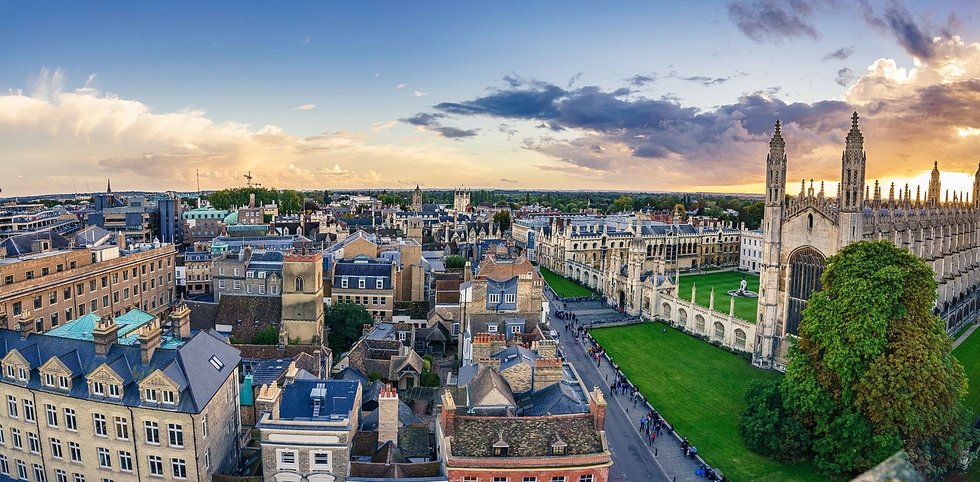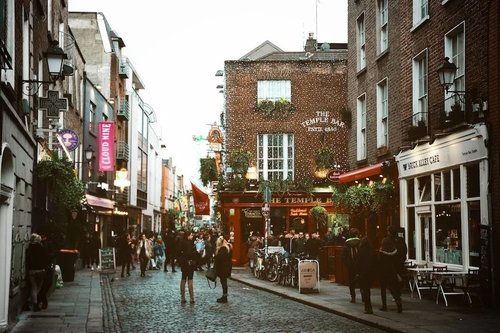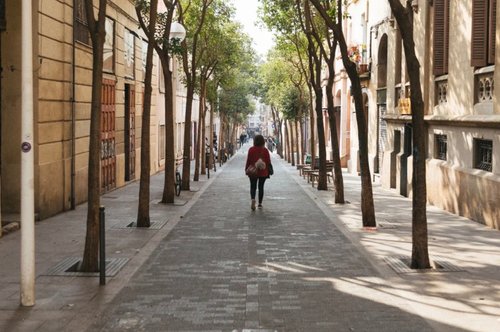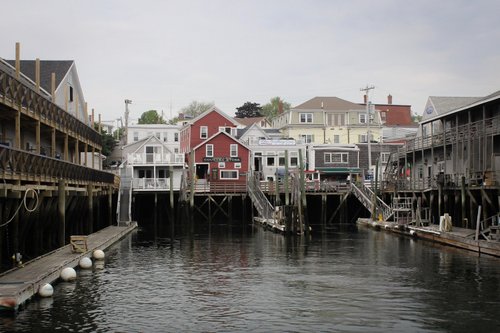Relocating to Cambridge for work
Feb 11, 2020
5 mins


Journalist and researcher
Home to one of the highest-ranked universities in the world, Cambridge is a magnet for those who are dedicated to research or like the academic vibe. With its small town centre, the city is compact but thriving enough to keep you entertained. And with a burgeoning job market— it’s the fastest-growing city in the UK in terms of employment —there’s hardly been a better time to move to Cambridge.
Cambridge may be best known for its prestigious university environment, and make no mistake, it’s at the very centre of life in the city. It’s not all about books though. Its ever-expanding tech scene is nicknamed Silicon Fen, a wordplay on Silicon Valley and Cambridge’s proximity to The Fens. There are also a few multinationals—AstraZeneca even moved its global headquarters here—that manage to capitalise on the highly educated workforce without dominating the city.
The job market
Out of all the cities in the UK, Cambridge is leading the way in terms of job creation. There was a 2.2.% growth in year-on-year employment in the second quarter of 2019. The future is bright too: employment is predicted to rise by a whopping 23.9% over the next decade, while the local economy is expected to grow by 20.1%.
The university and the up-and-coming Silicon Fen tech scene are key to the local job market as many jobs are linked to either or both. Indeed, with many Silicon Fen companies created by Cambridge graduates or having their roots there, it’s a highly innovative environment, with the university at its core. Trinity College even manages Cambridge Science Park. The latest addition to Cambridge’s academia-meets-professional life is the Cambridge Biomedical Campus, the largest of its kind in Europe.
Rise in tech scene: the Cambridge Phenomenon
The tech scene is buzzing here, with a wide range of companies and technology sectors represented. The area has been a world leader in the tech industry for years, especially for deep tech and engineering, but it has benefitted from a much-needed marketing push in the past few years. That also came with a rethink about what type of tech was worth pursuing.
AI in particular is having a moment in the Cambridge limelight: big names including Apple, Samsung and Microsoft have all set up dedicated AI teams here. There’s even a term for the rapid growth in tech, life science and service companies in and around Cambridge over the past 50 years: the Cambridge Phenomenon.
It certainly seems to be working. Cambridge has more than 15,000 digital tech jobs and a digital tech turnover of £2.4billion—that’s double the figure of the average UK city. If you put that into real money, a software engineer can expect to earn an average of £39,090 p/a as a base salary as of January 2019. It comes as no surprise that the city is in demand, with Cambridge coming second only to London when it comes to high growth technology investment. On top of that, it was also named the best place in the UK if you’re looking to start a business in 2018—something that you might just be inspired to do, surrounded by the best and the brightest.
Other hiring sectors
- Life sciences: a scientist at a multinational in Cambridge can earn £40,262 p/a.
- R&D: as a manager, you’re looking at £42,913 p/a.
- Engineering: mechanical engineers can expect £30,000-£45,000 p/a, with an average salary of £33,000 p/a.
City layout
Cambridge is rather compact, with most places within walking distance. Perhaps counterintuitively, Cambridge Station is at the far end of the city centre: it takes around 20 minutes to walk from the station to the Grand Arcade, one of the main shopping areas.
The city is dominated by the University of Cambridge and its 29 colleges, some of which are located right in the centre. South of the centre, close to the station, are the university’s botanical gardens, and the River Cam runs along the northern edge of the city. Commuters tend to favour living close to the station, while the north side, towards Chesterton, is more up and coming, with new developments being built.
But is Cambridge for you?
The importance of the university cannot be overstated. With college buildings dotted around town, you’re bound to notice its impact even if you have a job that isn’t related to this prestigious place of learning. If you have a university-related job and like your life surrounded by academia, you’ll feel right at home.
The city is also quite small: Cambridge has an estimated 129,000 inhabitants, roughly 20% of whom are students. A significant proportion are international students, but Cambridge still tends to be less multicultural than, say, London. The student population means demographics change throughout the year; there are a lot less locals strolling around outside of term time, when tourists take their place instead.
Pros
- If you’re looking to escape a large city, Cambridge is wonderfully small.
- The university provides an exceptionally high-brow, historic vibe to the city.
- There are several dozen events held throughout the year—think rowing races to literature, film and science festivals—so there’s no need to get bored.
Cons
- For such a small city, the cost of living is staggeringly high.
- There are lots of tourists, especially in the summer months.
- As the student population is quite large, Cambridge changes drastically depending on whether it’s term time or not. If you’re not connected to the university in some way, this may feel a bit isolating.
Practical information
Rent
Cambridge certainly isn’t the cheapest place to live. The average house price in November 2019 was £465,300. Rent for a one-bed flat, however, ranged from £825 to £1,067 in January 2019. You’re probably better off renting, although note that decent value rooms get snapped up quickly by thrifty students or one of the many professionals, so you have to be on your toes to get a good deal.
Transport
Being a small city, Cambridge is easily walkable. Most locals cycle as well, with the streets full of commuters on two wheels. Cars are much less popular, mostly due to all the one-way streets, pedestrian zones, a lack of parking in the centre, and the traffic congestion that comes with all of this. For those who prefer public transport, the local bus service is run by Stagecoach, with a single ticket going from £1, and a day pass for £4.50, depending on the route. Tickets can still be bought on the bus if necessary.
If you crave the bustle of a big city or need to commute, it takes only an hour to get to London on a fast train, with regular services to King’s Cross and Liverpool Street Station.
Relocation costs
Cambridge is a relatively easy place to get settled due to the high turnover of students and academics at the university. This also means there are plenty of Cambridge-specific relocating companies that flaunt their services. It pays to shop around and assess what you need before jumping in.
If you’re keen to do things yourself, keep in mind general costs: will you need a short-term let before finding a permanent home? Do you need a man with a van? How many boxes do you have? If you were asked to relocate by your company, it’s worth asking your (new) boss if it’s possible to arrange a relocation package to cover these costs. It’ll certainly take the sting out of it.
Letting institutions know you’ve moved
Before the big move, let your old council know you’re moving to avoid paying any unnecessary council tax. Cancel all contracts with your old utility providers as well. After you’ve moved, make sure that essentials such as banks, subscriptions and more have your new address. You can have your mail redirected to your new address too, but this comes at a price. Finally, you’ll need to register with a local GP and set up new utility contracts. Don’t assume that your old provider will be the best value in your new location too: it always pays to compare again before making a commitment.
Does the academic life appeal to you? Then it’s time to move to Cambridge.
Photo: Shutterstock
Thinking of moving to Barcelona for work? Discover all the insider tips, advice and inspiration with Work in Barcelona, our city guide.
Follow Welcome to the Jungle on Facebook and sign up for our newsletter to receive our best articles every week.

More inspiration: Relocate for work

Fancy moving to Dublin, Ireland to work? Here’s what you can expect
Discover what makes Ireland's capital a top destination for professionals worldwide.
Apr 16, 2024

Moving to NYC for work? Here's what you need to consider
What is the reality of living and working in The Big Apple? The truth has to lie somewhere between Sex and the City and Taxi Driver.
Jan 10, 2024

Fact or fiction: graduate programs in Europe are worth it
As soaring US tuition cost has caused a debt crisis, Americans are turning their eyes to graduate schools in Europe...
Apr 12, 2023

The 2023 guide to living and working in Portland, Maine
As the cost of living in East-Coast naves like Boston and New York keeps rising, Portland is emerging as a top choice for big-city defectors.
Mar 21, 2023

Moving to the country in a post-pandemic world
As remote and flexible work edges toward ubiquity, roughly half of Americans would already prefer a rural area to a city or suburb
Feb 13, 2023
The newsletter that does the job
Want to keep up with the latest articles? Twice a week you can receive stories, jobs, and tips in your inbox.

Looking for your next job?
Over 200,000 people have found a job with Welcome to the Jungle.
Explore jobs